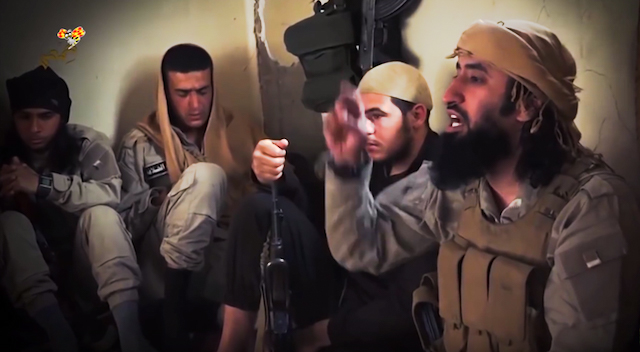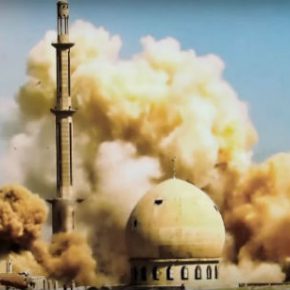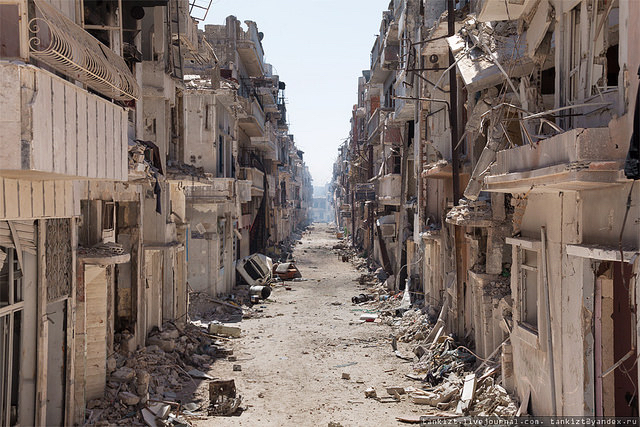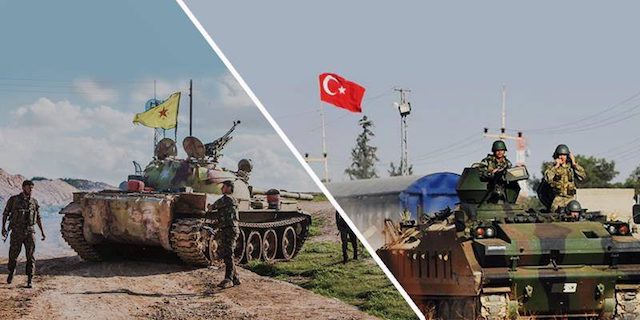Islamic State’s retreat from the Turkish border, and the arrest of multiple suicide bombers trying to cross over to hit Turkish targets this weekend, shows that the group’s strategy is changing rapidly. With Turkey still a source of illegal funds and recruits, ISIS nonetheless appears much less concerned with maintaining a “live and let live” approach with the security forces. Ankara has grown far less reluctant to risk internal stability by taking known operatives on openly.
This approach characterized the ISIS position on the Turkish-Syrian border in spite of the clashes that did occur, not least because the government saw Kurdish factions as the greater threat to the country’s security, but also largely due to the lack of control Ankara has over certain aspects of its Syrian policy on the periphery.
Turkish security forces attempting to shut down illegal border crossing of men and material compete with other domestic groups, sometimes even members of their own ranks, who seek to enrich themselves through the war, not much minding what this means for ISIS, and those who may in fact sympathize with ISIS and seek to aid it covertly.
But, since the summer of 2015, though, Turkey has more forthrightly pursued a policy of taking control of the border zone (which, while adversely affecting Kurdish rebels, hurts ISIS more). Mass arrests of suspected ISIS operatives have been undertaken, and, with the United States, Ankara has placed sanctions on known fixers and fundraisers for the group operating inside the country.
https://www.youtube.com/watch?v=KycEX3xivoE
At the same time, the Islamic State’s August suicide bombing of a Kurdish wedding party in the city of Gaziantep, a gateway to the Syrian border, shows that Turkish security forces are as yet unable to keep the group from using the city. Together with an earlier bombing targeting police there, the attacks show that the “relative” peace observed there by ISIS was made possible only by the physical access of the town to the border.
While the group had no compunctions in gunning down Syrian émigré journalists and activists in broad daylight in the city, it did not wish to push too hard against the security services in ways that would force them to crack down on a key logistics hub. Indeed, some of the group’s suicide weapons are built there in secret before being dispatched to other towns for deployment. Certainly, many foreign volunteers have passed through Gaziantep and other towns nearby over the past two years.
https://www.youtube.com/watch?v=atBhAv07kLc
With the group driven from the border by rival militias the Turkish government supports, Islamic State’s Turkish “command” seems determined to take revenge on the government. ISIS, like al-Qaeda in Saudi Arabia did in the mid-2000s before ending up on the run to Yemen, has decided to go all-out by staging mass casualty attacks in Turkish cities, from within the heart of the capital to the international airports, and even small border towns.
As their “emir” Ilhami Bali has said, “who should we hit … PKK (Kurdish militants), be it Turkish soldiers, be it tourist spots. Whatever you have planned” – giving his comrades quite a bit of leeway in hitting targets within the country. Istanbul itself has now been hit by three suicide bombings in 2016 alone, and it is also clear the focus on Kurdish civilians is part of a plan to exacerbate Turkey’s existing ethnic divisions.
Where does this leave ISIS’ central “command” in Raqqa, however? With their plans to send and receive operatives in Europe so reliant on Turkish people smuggling networks, do such attacks in Turkey not risk the existence of these ratlines? Indeed, they do, but it seems the group may no longer care so much about that. Even speaking of a centralized “command” covering a single front is problematic, since the group does not operate as a conventional military and there is little recourse that Raqqa could take to bring Turkish operators to heel if they wish to prioritize mass casualty attacks in the country. It isn’t possible to easily recall people to Raqqa for consultation, or send a blue ribbon committee to Gaziantep to investigate the leadership there, especially now that the direct Syria-Turkey border links have been cut.
ISIS recognizes the battlefield’s shape has changed and cannot be turned back by a lightning strike to retake lost ground. Instead of relying on foreign volunteers who came to the country for training and then slipped back to their homelands, ISIS now encourages would-be recruits to stay home and act as best they can, with minimal logistical support. This has seen some bloody successes, but also led to operations performed by enthusiastic, yet untrained fellow travelers, whose actions do not always have the desired impact.
Photograph courtesy of deekaywhy. Published under a Creative Commons license.





